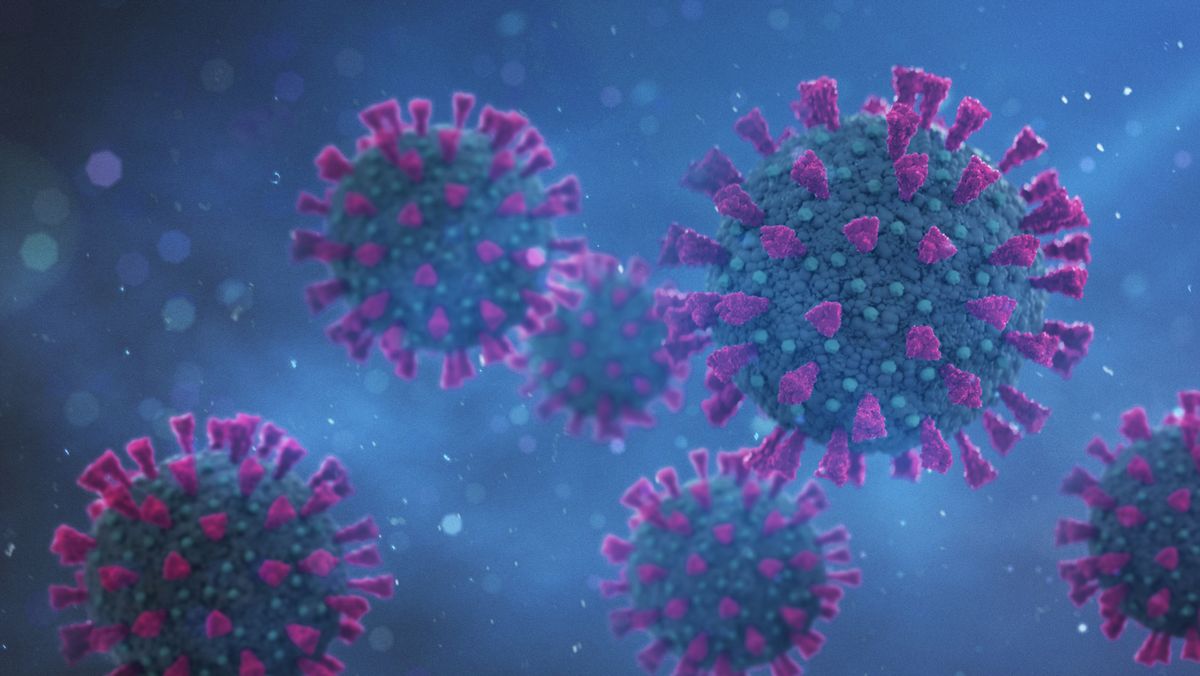- The Omicron variant of COVID-19 has officially been found in the United States; nine cases have been reported across five states so far.
- First identified in South Africa in late November, Omicron has been labeled a variant of concern by the World Health Organization.
- Much is still unknown about the new COVID-19 variant, but it appears to be highly contagious; the CDC urges all eligible Americans to get vaccinated and boosted now.
The Omicron variant of COVID-19 has officially reached the United States—but much is still unknown about the strain labeled a variant of concern by the World Health Organization (WHO) last week.
For months now, the Delta variant has been the driving force behind the vast majority of COVID-19 cases in the United States and around the world; Delta made up 99.9% of domestic SARS-CoV-2 infections during the last week of November, Centers for Disease Control and Prevention (CDC) data reveals.
But now, Omicron has the potential to spread more rapidly than Delta, according to public health experts. The “overall global risk” of Omicron is “very high,” the WHO warned in a brief this week. “Omicron is a highly divergent variant with a high number of mutations … some of which are concerning and may be associated with immune escape potential and higher transmissibility.”
Despite tightened travel restrictions, the Omicron variant, which was first detected in South Africa, has been found for the first time this week in nine American patients in California, Colorado, Hawaii, Minnesota, and New York.
But why are experts worried about Omicron? How contagious is the strain? And are the COVID-19 vaccines and boosters effective against it? Here’s everything you need to know about the Omicron variant, according to doctors.
What is the Omicron variant?
The Omicron variant, also called B.1.1.529, is a strain of COVID-19 that was first detected in South Africa on November 9 and reported to the WHO on November 24. “In recent weeks, infections have increased steeply, coinciding with the detection of [Omicron],” the agency wrote last week. Since then, its presence has only appeared to grow—as of last week, Omicron infections were increasing in nearly all provinces in South Africa. (There is no indication the variant originated in South Africa; that’s simply where it was first detected.)
Preliminary research suggests that the new variant, which has many mutations in its spike protein, poses an increased risk of reinfection, the WHO notes. “This variant has been detected at faster rates than previous surges in infection, suggesting that this variant may have a growth advantage,” the organization says. Omicron has been detected in South Africa, Hong Kong, the Netherlands, Canada, and Australia, according to the Associated Press, along with the two United States cases so far.
It’s unclear whether Omicron causes more severe illness than other variants, including Delta. “Preliminary data suggests that there are increasing rates of hospitalization in South Africa, but this may be due to increasing overall numbers of people becoming infected, rather than a result of specific infection with Omicron,” the WHO writes.
For now, there’s a lot we don’t know about Omicron, including its transmissibility compared to other forms of SARS-CoV-2 like Delta, its impact on vaccines, and whether or not it causes more severe disease. Because it’s still so new, more time and research are necessary before drawing conclusions.
How effective are vaccines and boosters against the new variant?
As the WHO stresses, experts can’t say yet what the vaccine efficacy against the Omicron variant is; there is not enough research to understand how the available COVID-19 vaccines and boosters interact with the new strain.
“We know what it takes to prevent the spread of COVID-19,” the CDC explains. Along with prevention strategies like wearing face masks in public, washing your hands frequently, and practicing physical distancing, the agency recommends that everyone age 5 and above get vaccinated and eligible adults get booster shots.
“It appears that the hospitalized patients in South Africa [who were infected with Omicron] were largely unvaccinated, arguing vaccines protect against what matters,” says infectious disease expert Amesh A. Adalja, M.D., a senior scholar at the Johns Hopkins Center for Health Security.
“We know almost nothing about Omicron,” explains Kawsar Talaat, M.D., an infectious disease doctor, vaccine researcher, and assistant professor in the department of International Health at Johns Hopkins University. “It is possible that boosters will be necessary to help protect against infections with this variant. We just don’t know because we don’t have that data yet.”
But as long as you’re fully vaccinated—and especially if you’re boosted—you’re probably as protected as you can be right now. “If you are fully vaccinated and you’ve received your booster shot, your degree of protection is extraordinarily high,” says Thomas Russo, M.D., professor and chief of infectious disease at the University at Buffalo in New York. “That would provide a buffer, even if this variant is more resistant to vaccination than earlier versions.”
He explains that it’s “unquestionable” that the higher degree of protection from COVID-19 you have “the better off you are with this variant and with others as well. … [This] should re-emphasize the importance for the unvaccinated to get vaccinated and those who are eligible to get their booster shots.”
What are the symptoms of the Omicron variant?
According to the WHO, there is no information to suggest that Omicron has symptoms that are different from other COVID-19 strains. “Initial reported infections were among university students—younger individuals who tend to have more mild disease—but understanding the level of severity of the Omicron variant will take days to several weeks, the WHO says.
These are the symptoms of COVID-19, which would include Omicron, per the CDC:
- Fever or chills
- Cough
- Shortness of breath or difficulty breathing
- Fatigue
- Muscle or body aches
- Headache
- New loss of taste or smell
- Sore throat
- Congestion or runny nose
- Nausea or vomiting
- Diarrhea
How worried should you be about Omicron?
Although public health experts are expressing concern about the Omicron variant, the overwhelming message is that no one should panic—there’s still a lot to learn about the new strain, and the news might not be all bad.
“I do think it’s more contagious when you look at how rapidly it spread through multiple districts in South Africa,” Francis Collins, M.D., director of the National Institutes of Health, said on CNN’s State of the Union on Sunday. “It has the earmarks, therefore, of being particularly likely to spread from one person to another. What we don’t know is whether it can compete with Delta.”
“I know, America, you’re really tired of hearing about those things,” he added, “but the virus is not tired of us.”
“It’s too early to know what level of threat B.1.1.529 constitutes as there is not enough information—particularly clinical information—about the cases that have been identified,” Dr. Adalja explains. We still require “a lot of investigation to characterize what it may mean for immunity—vaccine and infection-induced—as well as monoclonal antibodies.”
“We’re going to fight this variant with science and speed, not chaos and confusion,” President Joe Biden said on December 2. “We moved forward in the face of Covid-19 Delta variant, and we’ll move forward in the face of the Omicron variant as well.”
“The most important thing is to get your first series of vaccines,” Dr. Talaat says. “If you haven’t already been vaccinated, this is a really good time to get vaccinated, because Delta is about to surge again. We don’t know what’s going to happen with Omicron, and the best way to protect yourself and the people you love around you is to get vaccinated.”
Korin Miller is a writer who specializes in wellness, commerce, and lifestyle trends, with bylines appearing in Prevention, Yahoo News, Forbes, Food & Wine, and more. Korin is a former competitive runner and Division I athlete with six state championships under her belt. She has a master’s degree in new media from American University, and has more than a decade of health reporting experience. Korin has been ranked one of the most viewed journalists on Muck Rack for three years in a row. A former New York City resident, Korin now lives at the beach. When she's not writing, Korin can be found chasing her four young kids around and occasionally trying to get some sleep.

Jake Smith, an editorial fellow at Prevention, recently graduated from Syracuse University with a degree in magazine journalism and just started going to the gym. Let's be honest—he's probably scrolling through Twitter right now.












